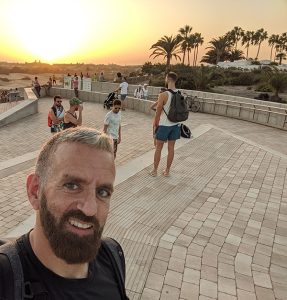What Is Pay Per Click Advertising, and Is It Right for You?

So, you have a website, and a blog…what’s next? It’s no good pushing your content out into the ether, never to be consumed by anyone. Even worse is having an amazing product or service that no one knows about. So how do you keep your content from getting lost out there amongst all the choices on the big ol’ world wide web?
We’ve extolled the values of content marketing before. Great content — content that is relevant to your business offering and mission — will help you rank more highly in search engine results, which drives traffic to your site in turn. But it can take a while to build a bank of excellent content, and even then, competition for popular keywords can mean your page might rank several pages behind others offering similar services or products. Pay per click advertising is one of the ways that you can continue to stand out, regardless of your search engine ranking, or how much content you have on your website.
What is PPC advertising?
Pay per click (PPC) advertising uses search engine results to generate clicks to your website. This means that, after typing in a search word or term, people aren’t clicking on search engine results, but instead are clicking on advertisements.
Each time someone clicks on your ad, which is generally denoted with the word “Ad” wherever it is positioned on a webpage, it sends the visitor to your website. You then pay the search engine a small fee, called the “cost per click,” for sending the traffic to your website.
Considering PPC advertising for your business
You might be wondering why you should pay for traffic to your website. According to Blue Corona, businesses make an average of $2 in income for every $1 spent on Google Ads. Additionally, PPC visitors are 50% more likely to purchase something than organic website visitors. It is not just about making a sale, either. If you’re looking to grow your customer base or increase the number of leads in your database, PPC can also help. PPC ads increase brand awareness, and often help consumers find new products and services they didn’t otherwise know existed.
Setting up a PPC campaign
All the big search engines offer PPC advertising services, although most of them take place on Google, the world’s most widely-used search engine. To get your ads running smoothly, and to be able to attribute your clicks to sales, takes some elbow grease. We’ll write about that in future posts, so stay tuned! In the meantime, doing some research is always a good first step. If you were a potential customer, what would you search for, if you needed your product or service? When you search for these terms, do a lot of ads appear in the results? What do the ads say? Would you click on them? Most importantly, will you eventually make money by driving traffic to your site?
Learning how to do PPC advertising right is an art and a science. We’ll continue to share best practices and tutorials, but understanding what it is and how it works is the most important first step. Do you use PPC advertising already in your online marketing initiatives? If so, what are your most useful tips? If not, what’s holding you back? Let us know by tweeting us @sparkingbrands






























































